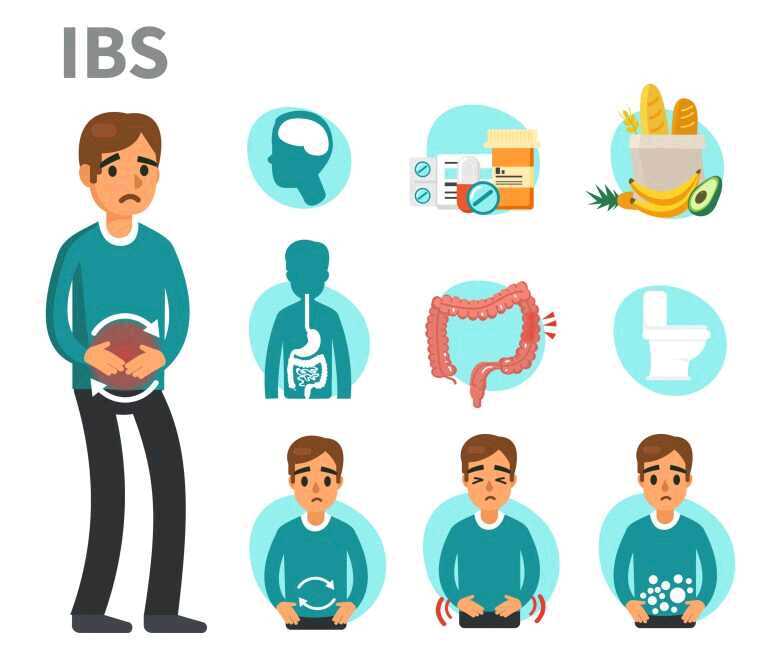
Having Irritable bowel syndrome (IBS) can be extremely taxing. IBS is not a simple condition: it affects everyone differently. Some people, for instance, will experience cramping, bloating, and diarrhea in response to trigger foods while others will experience bloating, indigestion, and constipation. Trigger foods, too, differ from one person to another, with some experiencing terrible symptoms after eating sugar, and others only experiencing symptoms when eating spicy foods.
IBS and Diabetes
Figuring out your body’s triggers and responses can be a long process that requires a lot of trial and error. Consequently, you might experience a lot of discomfort and frustration along the way. Having to limit foods becomes tricky when diabetes is added to the mix because you need to make sure you are getting all of your food groups in your meals—all the while avoiding any foods that trigger symptoms.
4 Ways to Manage Your Conditions
 #1. Eat a Well-Rounded Diet
#1. Eat a Well-Rounded Diet
Most IBS symptoms can be kept at bay with a rich, healthy diet filled with whole foods such as fruits, vegetables, high-quality meat, and whole grains. This diet will also keep your diabetes happy as your body will experience lower cholesterol and triglycerides and more stable blood sugar. In the end, you will likely enjoy more energy.
#2. Stay Away from Triggers
Not all triggers are going to be obvious (think sugar and fried foods). Triggers can also include foods that are a little bit harder to digest like raw fruits and vegetables, or processed grains. Fruits and vegetables can be cooked and grains can be fermented or sprouted to make them easier to digest.
#3. Limit Caffeine
While caffeine can be great for weight loss and keeping cholesterol down, it has also been known to act as a stimulant, which can irritate your stomach lining. Try to stay away from coffee or excessive amounts of caffeinated tea or chocolate. Even though all of these can be consumed in moderation, taking in a lot of caffeine is one of the quickest ways to trigger an onset of IBS symptoms and can also negatively affect blood sugar.
#4. Keep Your Stress Levels Low
High stress levels are problematic for both IBS and diabetes. IBS symptoms can emerge, even when triggering foods aren’t eaten, in response to stress. Similarly, diabetes symptoms can worsen when your stress levels are high, leading to more severe highs and lows in blood sugar, increased blood pressure, and general malaise.
Although having diabetes and IBS can seem severely limiting in terms of foods you’re allowed to eat, you can successfully manage both diabetes and IBS without eating tiny meals or going without. Instead, you must learn to identify your body’s unique makeup, including IBS triggers and foods that interact negatively with your diabetes.
ReferencesDiabetes UK. Accessed 7/14/17.
Very Well. Accessed 7/14/17.
